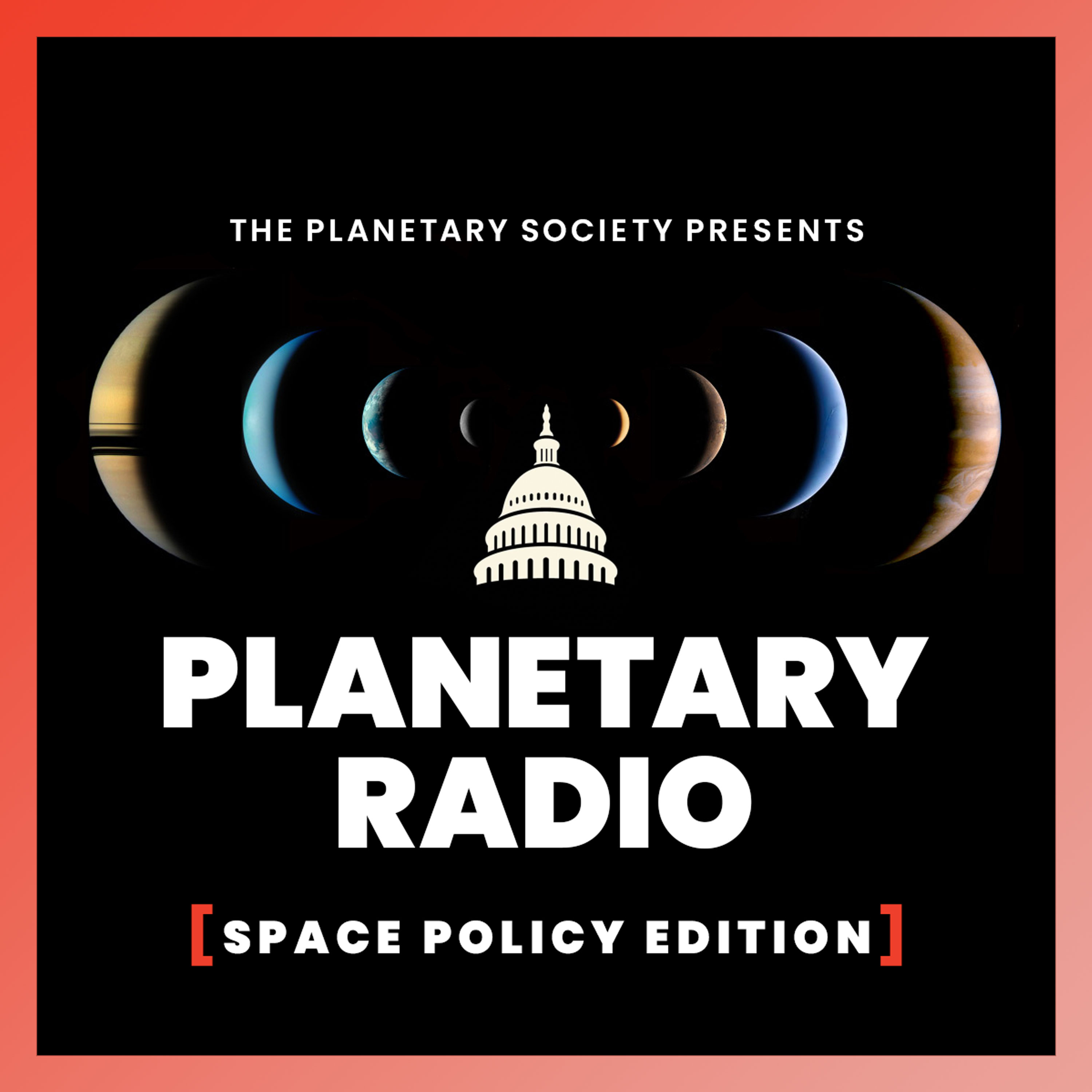

Planetary Radio: Space Policy Edition
The Planetary Society
The politics, policy, and history behind space exploration.
Episodes
Mentioned books

Jun 1, 2018 • 1h 12min
Space Policy Directive 2—This Time it's Commercial
President Trump just signed a new space policy directive targeting the regulations surrounding commercial spaceflight. Casey Dreier, Jason Callahan, and Mat Kaplan dive into the implications of the new directive and what it means for the relationship between government and space. They also break down all of the good news in the House's new funding bill for NASA, and highlight NASA Administrator Jim Bridenstine's turnaround on climate change.

May 4, 2018 • 1h 3min
A Commercial Future for the Space Station?
After announcing it intends to divest from the International Space Station in 2025, NASA quietly released a new report on its transition plans, laying out a series of principles that will set the future of U.S. astronauts in low-Earth orbit. Can a private entity really take over the space station? Where did this idea come from anyway?

Apr 6, 2018 • 1h 17min
Lori Garver on what a NASA Administrator (and Deputy) actually does
Lori Garver, former Deputy Administrator of NASA, talks with Casey about what the Deputy and Administrator jobs are like day-to-day, how decisions actually get made at the top, and why the current lack of confirmed leadership hurts the space agency.

Mar 2, 2018 • 36min
Space Policy Edition #23 - Blitzing Congress: Planetary Society volunteers visit Capitol Hill
Society members from 21 states descended on the U.S. capitol for a

Feb 17, 2018 • 53min
Space Policy Edition Special: The 2019 President’s Budget Request Unveiled
As promised, Casey Dreier and Jason Callahan are back with a special review of the just-released FY 2019 President’s Budget Request (PBR) for NASA. It contains good news, bad news and odd news. What is likely to stand? What will Congress ignore, going its own way? NASA’s new lunar ambitions, Mars Sample Return, WFIRST and more hang in the balance. Let the debate begin.

Feb 2, 2018 • 30min
Space Policy Edition #21: Bill Nye and the State of the Union
Planetary Society CEO Bill Nye attended the State of the Union address on January 30th, he also spent the day meeting with sixteen different members of Congress to promote science on Capitol Hill. In this special abbreviated show, Casey Dreier and Mat Kaplan welcome their colleague Matt Renninger, who joined Bill on Capitol Hill, to discuss the goals of The Planetary Society and the reasons why it was important for Bill to attend.

Jan 5, 2018 • 1h 4min
Space Policy Edition #20: Looking back on the year in space policy. Also, your questions!
It’s the space policy guys’ turn to look back at a year that saw great achievements in space. Were they matched by events in Washington DC?

Dec 1, 2017 • 1h 33min
Space Policy Edition #19: When did the private space age begin? Much earlier than you think.
Elon Musk. Jeff Bezos. Richard Branson. These are the names we tend to associate with the current era of private space exploration. But what about John Quincy Adams, James Lick, or Charles Yerkes? Space economist and historian Dr. Alex MacDonald joins us to discuss his book,

Nov 3, 2017 • 60min
Space Policy Edition #18: Jim Bridenstine vs. the Senate and First Meeting of the National Space Council
The likely next Administrator of NASA, Jim Bridenstine, appeared before a somewhat skeptical Senate committee to defend his nomination. Casey and Jason recap the hearing and assess Congressman Bridenstine’s chance of moving forward.

Oct 6, 2017 • 1h 30min
Space Policy Edition #17: The 75th Anniversary of the Rocket Age, with Dr. Michael Neufeld
Fifteen years before Sputnik, on a bright 1942 afternoon in northern Germany, a thundering machine of metal and fire pierced the sky, ultimately touching the edge of space for the first time in history. It opened a new era of opportunity and terror with rocket technology. Dr. Michael Neufeld joins us discuss the significance of this test and how it happened.


